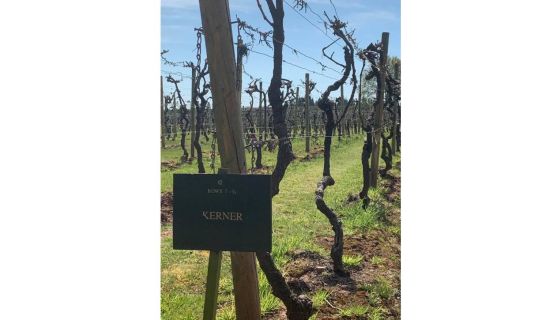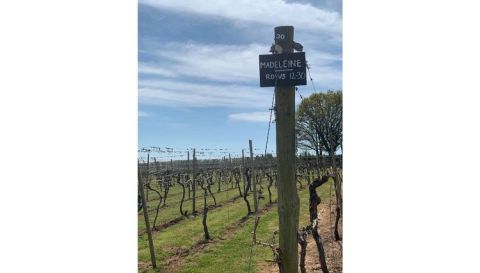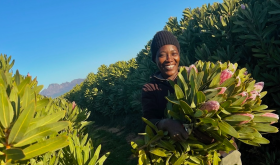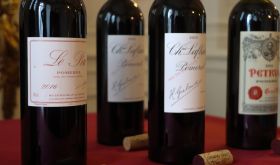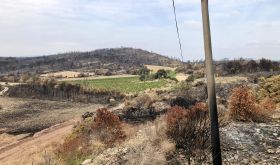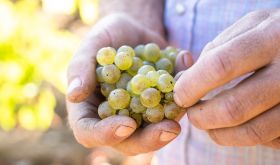Act 1 Scene 1
Narrator:
“The midday sun crowns a nearby hill top, shining benevolently upon the open countryside. Acre after acre, the sweeping landscape is exposed to the heat of the rays, whose warmth is welcomed with open arms by the rows and rows of gnarled old vines. Their twisted arms reach skywards to absorb the heat from the gleaming shafts of light. In the distance the rooftops of Kidderminster”
CUT
“Sorry?”
I said CUT! Did you just say KIDDERMINSTER??
“Well not quite. Stourport-On-Severn. Worcestershire. 30 miles from Birmingham. Latitude: 52°21′00″ Elevation above sea level: 25 m …”
Which is where you’ll find one of the oldest vineyards in Great Britain.
When planted it was reputedly the most northerly vineyard in the world.
Not the most obvious location for 50-year-old vines, but here they are, poised to reveal their first green leaves as budburst beckons in the warm spring sunshine.
Imagine – 1971, in the UK, not only planting a vineyard (unheard of) but planting the grape variety Kerner (even more unheard of) – that’s what the Bache family did. Creative, adventurous, innovative? That’s how all of the best ventures start. In 1984 the vineyard won its first award – first place in the white blend category of the South West Vinegrowers Association Annual Wine contest for its Muller-Thurgau – Huxelrebe blend. The beginnings of an upward trajectory.
1n 1993 Jonty Daniels became the second owner of Astley Vineyard. For 24 years Jonty tended his beloved vines. His reputation as an English wine maker grew and grew, a high point being a haul of 4 medals in the International Wine Challenge of 2009.
2017 saw the arrival of the Haywood family. Tim and Bev were looking for a new challenge after Tim’s retirement as a financial director. And there it was. Right on their doorstep. Old vines and all. Astley Vineyard. With no agricultural experience it was a viticultural baptism of fire. Creative, adventurous, innovative? I think there’s a theme emerging…
The 4.5-acre plot is home to old Kerner vines (pictured above), planted 50 years ago exactly. As Tim says – they are the pride of Astley Vineyard. Kerner grapes are a crossing of Riesling and Trollinger, and to the best of Tim’s knowledge this is the only vineyard in the UK where they are grown. The vines are vigorous and powerful, to the extent that they have to be trellised down to burn up excess energy. Each vine has 2 crowns in the battle to get sufficient productive buds. This is due to the shortness of the annual canes and the pruning choices of the last 50 years. Pruning entails leaving 2 canes for the current year’s growth and 2 spurs for next year. Kerner is no ordinary variety. Yet every year the vines willingly produce both unique sparkling wines from early harvest as well as an opulent off dry Old Vine Kerner.
If the Kerner vines are the irreverent gnarly old man of Astley, then let’s not forget the delicate soft Madeline Angevine grapes, planted in 1979 and growing gracefully and gently alongside the Kerners. Year after year these grapes produce food friendly wines with a delicate flowery nose, and add weight to the blends created at Astley.
Why have the vines been kept in the ground for so long? Quite simply because they continue to produce quality grapes which are then used to create quality wines. I asked Tim why he thinks that the vines have managed to survive, and he cited 2 main reasons – they haven’t been over cropped, and the site selection is second to none. A happy plant is a productive plant. Astley Vineyard holds an elevated and therefore well ventilated position which overlooks the Severn Valley. The river moderates the climate, the surrounding hedgerows create windbreaks to protect the vines, and the vineyard is surrounded on all sides by either arable land or ancient woodland, which encourages pests away from the vineyard. Perfectly designed by Mother Nature.
So what does the future hold for Astley Vineyard and its old vines?
I asked Tim what additional challenges the old vines present moving forwards. One is the prospect of declining productivity over time. As yet this hasn’t been a problem. There is a risk that the ever thickening trunks are gradually becoming too heavy for the graft union to support the weight of the plant – Tim offsets this with judicious pruning. Another challenge is the “travelling” crowns – each year with pruning the crowns move slightly. Over 50 years this has led to some very cumbersome plants and inconveniently high crowns.
Tim summarises the family ethos of Astley Vineyard in 1 word – stewardship. Sharing their passion and knowledge for wine is at the heart of this. A grant from Worcestershire County Councils LEADER fund, designed to boost the rural economy in Worcestershire, gave Tim and Bev the opportunity to build a brand new visitor centre and shop for tasting and tours. Pre-pandemic this was welcoming hundreds of visitors each year, and thanks to the grant the family have now moved wine production in house. Chris Haywood is Astley’s winemaker, and the wines are now included on Michelin Star lists throughout the country. The Haywoods support and work with other local producers to promote Worcestershire produce. And World Earth Day 2021 saw the arrival on site of machinery that uses an under vine cultivator to clear weeds, removing the need for artificial sprays. Viticulture in the vineyard is now entirely organic.
Back to the old vines. With their view over the resplendent Severn Valley and glorious ancient woodlands of Worcestershire a few lines of poetry spring to mind.
“Would I had never gone from you,
Majestic, wondrous forest!
You embraced me lovingly
For so many a long, long year!
Where, in your twilight places,
Was birdsong and silver stream,
There sprang also many a song
Fresh and bright from my breast.
Your surging, your echoing,
Your never-tiring murmur,
Your melodies, all of them,
Awoke within me song.”
The author? A renowned German physician, medical writer and poet. An advocate of wine consumption for good health. Well known being creative, adventurous and innovative - his name was Justinus Kerner. Strange that.
The photos are provided by Lindsay Jones.

